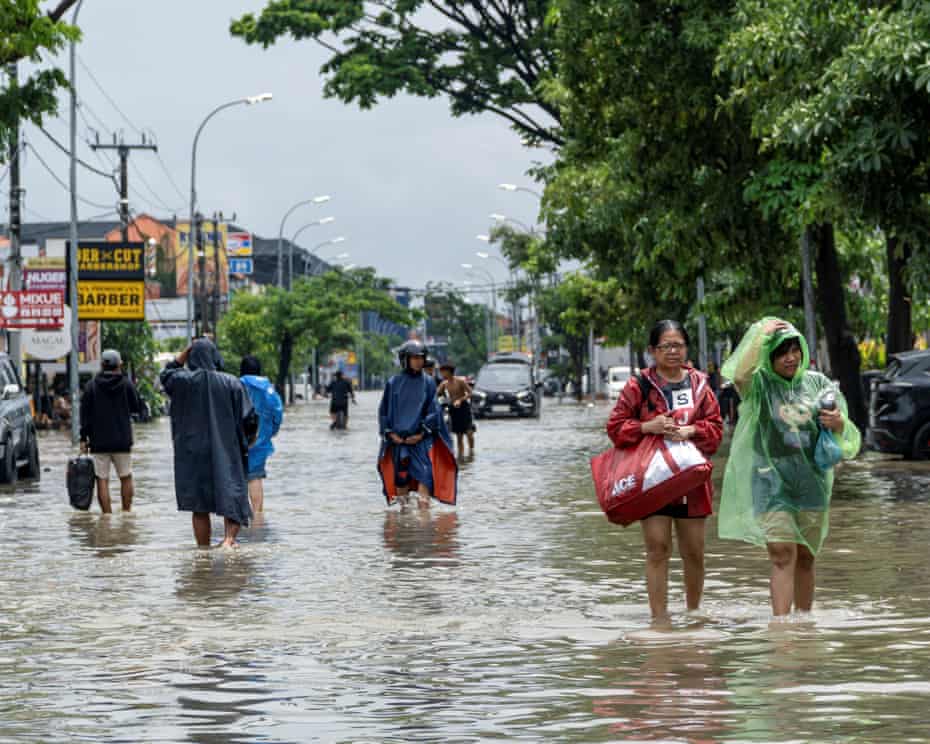Indonesia will prohibit the construction of new hotels, restaurants and other commercial facilities on cleared rice fields and productive agricultural land in Bali, following the island’s worst flooding in more than a decade, which left at least 18 people dead.
The ban, announced by Bali’s governor, Wayan Koster, comes after torrential rains triggered flash floods that swept through large parts of the island earlier this month. A state of emergency was declared on 10 September as floodwaters inundated homes, public buildings and infrastructure, displacing thousands of residents in Denpasar and surrounding districts.
Environmental groups have long warned that the rapid expansion of tourism infrastructure on the island, often at the expense of farmland and natural drainage systems has increased the risk of flooding and other natural disasters. The latest disaster has intensified calls for stricter controls on land conversion.
Governor Koster said on 14 September that instructions had been issued to all district heads and mayors across Bali to halt the issuing of permits for hotels, restaurants and similar developments on productive land, particularly rice paddies.
“After handling the floods, we will meet again to ensure no more permits are issued for hotels, restaurants or other facilities on productive land, especially rice fields,” he told Indonesia’s state news agency, Antara. “Starting this year, the land conversion ban will align with Bali’s 100-year plan. From 2025 onward, no productive land can be converted into commercial facilities.”
Bali, known as the “island of the Gods” for its lush rice terraces, volcanic landscapes and beaches, has undergone rapid transformation over the past 50 years. The growth of mass tourism has brought economic benefits but also mounting problems, including traffic congestion, pollution, water shortages and complaints from locals and visitors about unruly behaviour by some foreign tourists.
Indonesia’s central government announced plans last year for a moratorium on new hotels in Bali amid concerns over overdevelopment, but the measure was never implemented. The new bylaws are expected to be finalised and come into force by the end of 2025.
The decision follows warnings from Indonesia’s meteorology and climate agency of an extreme rainy season this year, compounded by a worsening waste management crisis that has blocked waterways and exacerbated flooding in several regions, including Bali.
Flooding is a regular occurrence in Indonesia during the wet season, which typically runs from September to March. However, scientists say the climate crisis is intensifying rainfall patterns, leading to heavier downpours and more frequent flash floods. Overdevelopment, deforestation and poor land management are believed to be amplifying the damage caused by such events.
Indonesia’s environment minister, Hanif Faisal Nurofiq, described the new bylaws as a vital step for the island’s future. “This is also crucial for Bali’s tourism as the recent flooding has drawn serious attention,” he said. “I actually told the governor last week that I really hope he will immediately stop the land conversions in Bali. This is extremely important.”
Research shows that extreme rainfall events are becoming more common and more intense in many parts of the world due to human-induced climate change. Warmer air can hold more moisture, increasing the potential for heavy downpours. The likelihood and severity of flooding are also shaped by human factors such as the presence of flood defences, urban planning and land use.
Bali’s new restrictions are intended to preserve the island’s remaining agricultural land, maintain natural water absorption areas and protect the cultural landscape that has made it one of the world’s most popular tourist destinations. Officials say the measures will form part of a long-term strategy to balance economic growth with environmental sustainability and disaster resilience.
The floods earlier this month have renewed debate over the costs of unchecked development in Bali, with many residents and campaigners urging authorities to prioritise environmental protection over short-term commercial gains. The government’s commitment to enforcing the new ban will be closely watched in the months ahead, as the island begins its recovery from the latest disaster.



